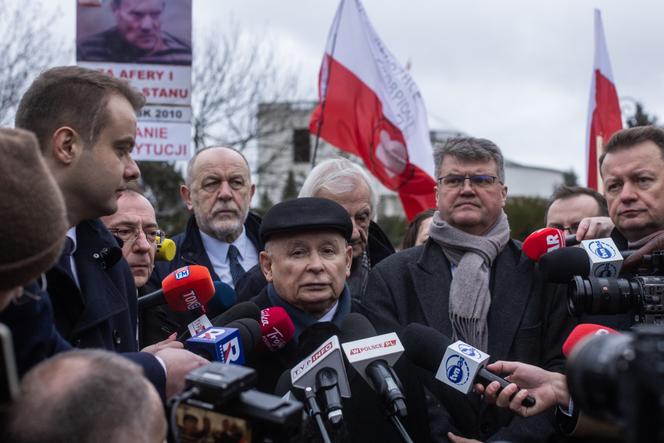


Many already consider the case to be the biggest political scandal in Poland since the fall of communism, symbolizing the authoritarian drift of the conservative Law and Justice party (PiS), in power from 2015 to 2023. The use of Pegasus spyware, a powerful tool for infiltrating smartphones, by the intelligence services of the party of former prime minister Jaroslaw Kaczynski will be at the heart of a parliamentary commission of inquiry, which began its hearings on February 19. Among the first witnesses to be called are Kaczynski himself, who is due to appear on March 15, former prime minister Beata Szydlo, and former justice and interior ministers Zbigniew Ziobro and Mariusz Kaminski.
"The aim of our work is to lead to the opening of judicial inquiries, so that those responsible for abuses of power can be held to account," Magdalena Sroka, president of the commission of inquiry, told Le Monde. "We have every reason to believe that the Pegasus system operated outside any legal framework, for criminal cases as well as for cases with little credibility, motivated by political reasons."
Since it was revealed in December 2021 by the Associated Press, based on information provided by the Canadian organization Citizen Lab, the case of the use of the controversial software by the Israeli company NSO Group in Poland has continued to electrify public opinion and the political class. Successive revelations in the Polish press have led to the conclusion that the scale of use of this tool in the country is unprecedented among Western democracies.
Around 7,000 licenses were acquired (allowing as many individual "infections") for several hundred targeted individuals, including many prominent members of the democratic opposition which, at the time, was fighting the PiS to get them to respect the rule of law. Some members of the commission of inquiry mention as many as a hundred "suspicious" cases.
These circumstances led the Israeli government to revoke the software licenses granted to the Polish government a month before the affair came to light – the same measure was taken for the Hungarian government at that time.
The list of known targets, which includes around 20 names, speaks for itself and some cases are particularly striking. First, that of Krzysztof Brejza, campaign manager for the Civic Platform (center-right), the main opposition party at the time, whose phone was infected around 40 times during the campaign for the European and parliamentary elections, between March and October 2019. Then, there is that of Roman Giertych, one of Warsaw's most influential lawyers and representative of numerous liberal political heavyweights and businessmen, including former and current Prime Minister Donald Tusk, former and current Foreign Minister Radoslaw Sikorski, and former finance minister Jacek Rostowski.
You have 62.25% of this article left to read. The rest is for subscribers only.
